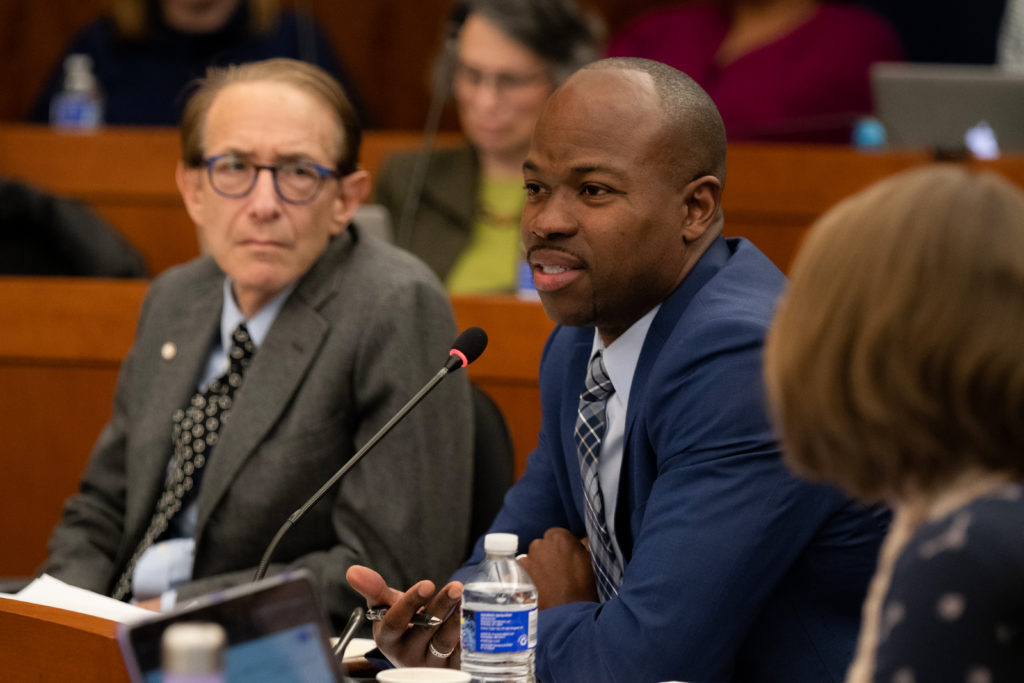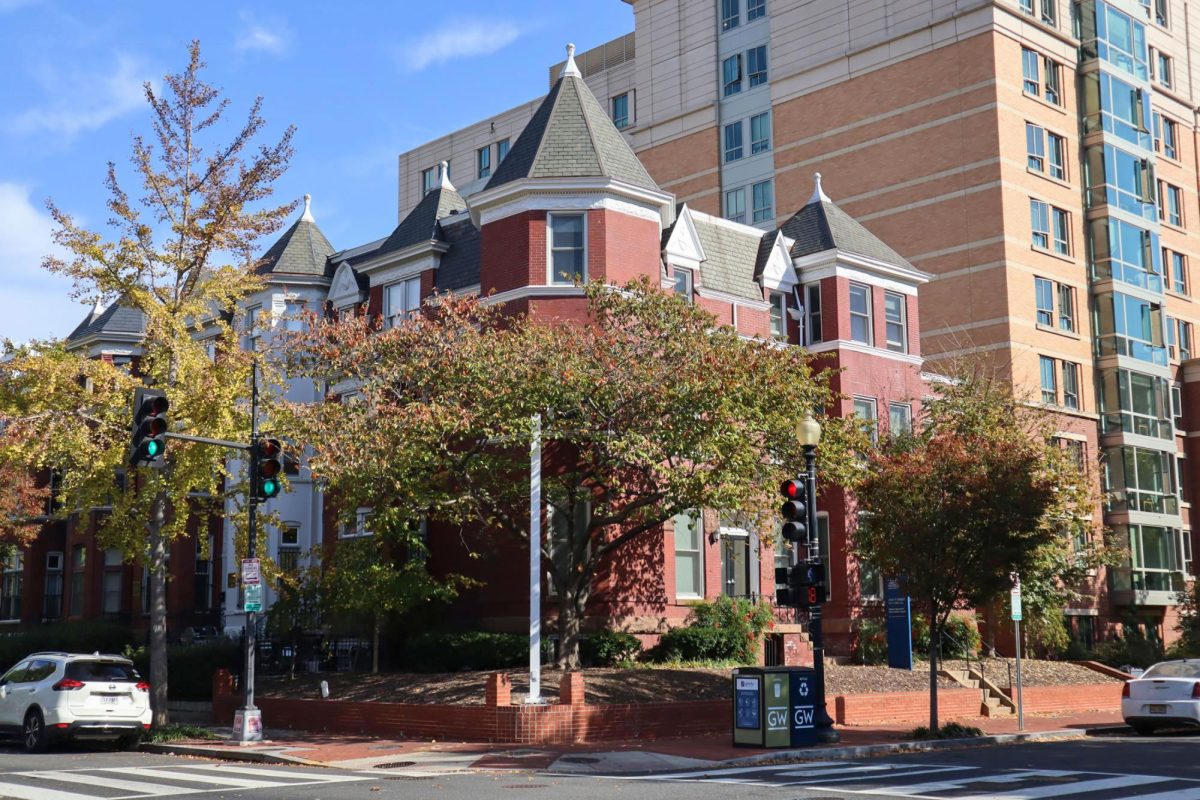Faculty senators at GW’s peer schools said officials’ decision to deny salary increases for promoted faculty members can “severely” impact professors’ long-term careers and hurt morale.
The Faculty Senate passed a resolution earlier this month urging officials to reverse their decision to deny salary increases for promoted faculty members and called on them to fulfill the raises before awarding salary increases to any non-newly promoted faculty member or administrative official. Provost Brian Blake said denying salary promotions was an “excruciatingly tough decision,” and he will “re-review the situation” in December once officials understand GW’s enrollment for the spring semester.
“The decision to delay these raises represented about a half million in FY21 savings and help to offset our need for further personnel actions,” he said in an email. “I am personally empathetic to our newly promoted faculty who are at that peak of their productivity.”
Blake said the decision to deny salary increases was “difficult” because he knows from his own experience that promoted professors are reaching the “pinnacle” of their careers.
He declined to say how many faculty members who have been recently promoted have not received salary increases and whether officials have plans to comply with the requests of the resolution. He declined to say if officials have a set scale for how much of a salary increase a promoted faculty member receives.
At least four of GW’s 12 peer schools, including Wake Forest University, the University of Miami and Georgetown University, have implemented a policy of pausing merit salary increases in light of the COVID-19 pandemic.
Faculty senators at GW’s peer universities said denying salary increases to promoted faculty is “unfair” and suggested providing half of the salary increase now and delivering the rest later on.
Wayne Davis, the president of the faculty senate at Georgetown University, said denying salary increases to promoted faculty can cause their salary to become “really uncompetitive” compared to faculty of the same rank at other universities. He said faculty promotion raises typically range between $10,000 and $20,000, and missing a promotion salary increase would have a “cumulative” effect on their future raises.
“If you miss one, your career is really severely impacted,” Davis said.
He said Georgetown’s faculty senate and administrators made the decision together to stop annual merit increases and cut 403b retirement contributions – which allow employees to add to their retirement savings while decreasing current income tax – for all faculty and staff but said they didn’t think “two minutes” about stopping salary increases for promoted faculty.
Officials are pausing retirement contributions for employees starting in October, which experts said is common for universities to enact in a time when they need to cut costs.
“I can’t believe it makes any sense to give these people a permanent lost promotion increase,” Davis said. “They’re just going to risk losing this whole category of faculty, their whole career is going to be ruined basically.”
Chris Bonneau, the president of the university senate at the University of Pittsburgh, said promoted faculty at the school are still receiving salary increases. He said senators worked with officials to discuss how to make cuts to the university budget salary freezes for non-promoted faculty.
Bonneau said rejecting promoted faculty members’ salary increases is “short-sighted” because the financial savings are relatively small.
He said he is concerned that the clause of the resolution that calls for promoted faculty to receive salary increases before other faculty members receive them may “pit” professors against each other. Bonneau said Pittsburgh’s senate usually resolves issues with administrators before creating a resolution and when an issue becomes public, it changes the “dimension of the discussion.”
“We disagree with the administration plenty,” he said. “Usually it’s done behind closed doors so by the time something comes up, we’re all on board.”
Bonneau said the fact that this issue was discussed in the open is a “failure of self-governance.”
Kevin McFarland, the co-chair of the faculty senate at the University of Rochester, said he serves on a faculty salary reduction advisory committee, which decides how to address the university’s financial shortfalls. He said senators and officials decided “very early on” to stop all raises except in the case of promotions.
“As a faculty member, you typically don’t get very many promotions in your track,” McFarland said.
McFarland said members of the faculty senate were consulted in the decision to stop all other raises and were able to come to an agreement with administrators without the need to create a resolution.
“A well-run shared governance system helps you get to consensus,” McFarland said.
Dave Haaga, a faculty senator representing the College of Arts and Sciences at American University, said officials at American froze salary increases for all faculty, regardless of recent promotions, and said furloughs and salary cuts will likely come in the near future.
GW officials implemented a salary freeze for all employees in April and announced that some senior administrators would take a voluntary pay cut.
“The key in my mind would be just making sure that faculty have input into these decisions about tradeoffs,” Haaga said.








